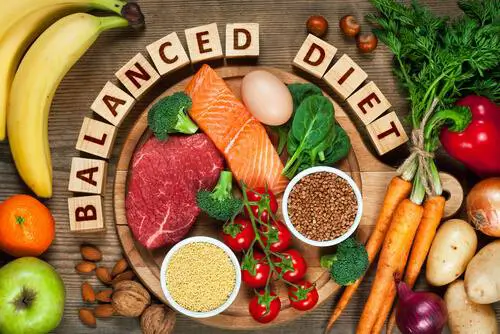
One can never stress enough on the importance of a balanced diet in living a long, healthy life. Though we know it is important for our physical and mental well-being, we often tend to ignore it on our constantly hurried pace of life. According to a report published by the Indian Council of Medical Research, the estimated proportion of all deaths due to non-communicable diseases (NCDs) rose from 37.09% in 1990 to 61.8% in 2016. Nearly 14.2 million people between the ages of 30-69 years across the globe die prematurely every year from diseases like heart attack, diabetes, and high blood pressure. If you look at the statistics, some of these diseases have emerged as more fatal than hereditary or infectious diseases.
In this age of consumerism, we are increasingly at risk of falling prey to lifestyle diseases. With technological advancements, greater purchasing power, and increasingly sedentary lifestyle, there has been a major overhaul in the way people function now. Less physical activity, more resources and little time, has made us more vulnerable to a range of lifestyle diseases that impede the quality of our life and sometimes prove to be fatal as well. Lifestyle diseases are often preventable, giving us some room to better safeguard our health and reduce the risk of any such diagnosis.
With the increasing prevalence of lifestyle diseases, it is estimated that one out of four Indians is at risk of dying from a non-communicable disease like renal failure or heart disease before the age of 70. It has become increasingly important, therefore, to invest in a suitable health insurance plan that can provide you the financial support in case you fall prey to any such disease. And by the same token, it has become crucial to inculcate a good lifestyle that consists of a nutritious, balanced diet. Prevention, after all, is better than cure, and therefore one must have the support of a health insurance plan besides a healthy lifestyle to equip oneself for life’s unpredictability.
Unlike minor ailments, the treatment of lifestyle diseases could be a financial drain on you and your family as the cost of treatment and care may run into several lakhs, given the rising health inflation in the country. A crucial health insurance benefit is that it takes care of your treatment process in case you suffer from an illness so you don’t feel overburdened with medical expenses.
Now, coming back to the prevention of lifestyle diseases, to avoid future risk of lifestyle diseases, it is most important to start making wiser choices. We are all aware that the constantly increasing production of processed foods, rapid urbanization along with sedentary lifestyles have led to changing dietary patterns. Instead of simple, nutritious diets, people are now moving closer to foods that are high in energy, fats, free sugars and sodium. Most of us would agree that we are not eating enough fruit, vegetables and whole grains.
We seldom worry about our daily calorie intake, which is the measurement of the amount of energy stored in the food you are consuming every day. Our bodies use the calories stored in our food to serve a variety of functions for survival like walking, thinking, breathing, and other cognitive and biological functions.
An average person, generally speaking, would need approximately 2,000 calories every day to maintain one’s body weight. That said, it is important to remember here that a person’s specific daily calorie intake varies due to a range of factors like age, gender, and level of physical activity. Moreover, there are other natural factors that determine the amount of calories you require, like men generally need more calories than women, and people who exercise need more calories than people who don’t.
Regardless of the variations, the basic formula for a balanced diet remains largely the same. So, if you want to start a healthy lifestyle, make sure you keep these common strategies in your mind before you plate up your next lunch.
- The first strategy for a balanced diet is to ensure that you consume a variety of foods to ensure that your diet is balanced.
- Include green, leafy vegetables in your diet as they are the primary sources of essential vitamins and minerals.
- Be cautious about the use of edible oils and animal foods. Oils that are good for us, such as olive oil, can replace fattier vegetable oil in your food preparations.
- Restrict salt intake to a minimum of less than 5 gram a day. Also, it must be ensured that the salt you consume is iodized.
- Always stay hydrated and take your beverages like coffee, cola, in moderation.
- Pay more attention to protein that’s vital for our muscle building and brain development. A balanced diet should have beans, legumes, eggs, fish or meat.
- Increase use of dairy products provide calcium, vitamin D, and other essential nutrients. However, they’re also major sources of fat, so be cautious. Choose small portions of full-fat cheese, and fat-free milk and yogurt for daily usage.
With the drastic change in our lifestyle over the recent years, we have become more vulnerable to illnesses that are either borne out of our bad eating habits or a sedentary lifestyle. While we must strive to inculcate a more holistic diet and active lifestyle, it is only practical to safeguard ourselves against any adverse health situation in the future. While health insurance benefits give us the required peace of mind, we should strive to include a balanced diet and nip these diseases in the bud.




Comments